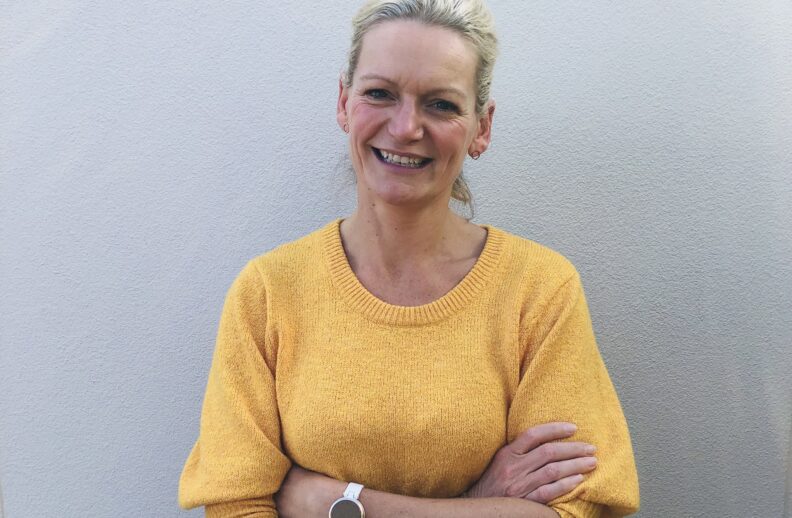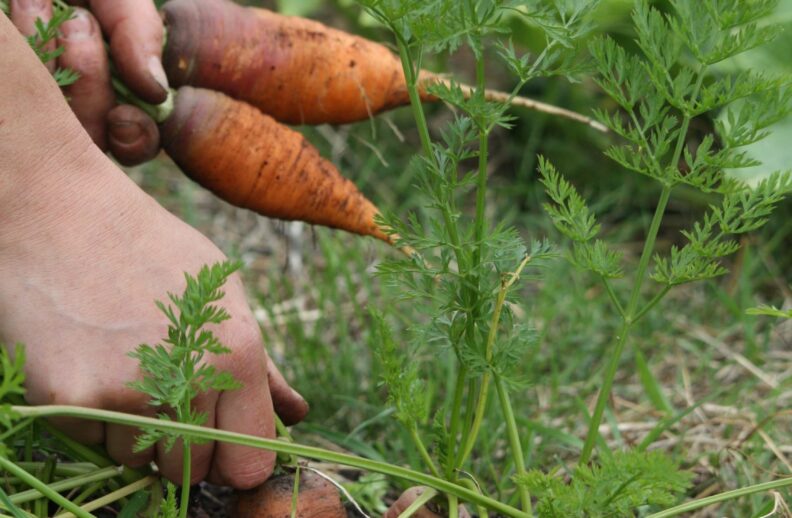Generations of overgrazing and land clearing left Barragunda Estate‘s environment in bad shape. But with some experimenting, innovation and a whole lot of passion, things are turning around.
When European settlers arrived in the Cape Schanck area in the early 1800s, Barragunda became prime pastoral land.
Unfortunately, the settlers’ practices of land clearing and overgrazing have since had serious consequences on the environment causing large pockets of erosion, and the loss of wildlife biodiversity.
After the Morris Family became custodians of the land in 1999, its rejuvenation became a labour of love for Morris Group Executive Director Hayley Morris.
Her increased interest and knowledge in regenerative agriculture has been the driving force behind the property’s switch towards more sustainable practices.
“When land is overgrazed, there’s no root systems to maintain any structure. On sandy soil like we have at Barragunda, this means you’re basically converting grassland to a beach,”
Hayley Morris, Morris Group

Hayley Morris
“Couple that with huge coastal winds, and the erosion sites just keep growing unless you actively work to increase ground cover and get roots back in the soil. When the land is bare, there’s no protection from the wind so it’s really difficult to have a diverse ecosystem.
“Diversity in plants means diversity in mammals, birds and insects. When that balance is out, you end up with outbreaks of pests and large mammals which can then create their own environmental issues.”
With the tireless work and expertise of Hayley along with Barragunda Property Manager Darryl Rogers, chef and organic gardener Simone Watts, and the team of farm hands, the effects of generations of overgrazing are being reversed.
“We’ve introduced rotational grazing which means we rotate the livestock every few days instead of every few weeks. This means they’re never on an area long enough to overgraze,” Hayley said.
“They’re also in smaller paddocks, allowing for their manure and urine to fertilise the soil which helps strengthen the root systems. Water is retained in the soil making it more drought-proof, and carbon is pushed underground where it belongs. All of this means our paddocks bounce back faster and are more resilient.”

Carrots at Barragunda
The team’s also been hard at work planting trees and ground cover, and fencing off parcels of native vegetation which equates to about 40 per cent of the property.
“The erosion sites are repairing, there’s been an increase in the diversity of native grass species, and a decrease in weeds,” Hayley said.
“We’ve also implemented regenerative methods to our orchard and market garden, meaning we don’t till the soil, or use synthetic pesticides and fertilisers. We have our own compost, drip irrigation, and we use mulch to reduce water loss.”
Although the team has already achieved a great deal, Hayley says there’s still more to come.
“What we’re aiming for is a ‘closed loop’ farming system that regenerates itself. We still rely on some outside inputs like fertilisers and compost, but eventually we’ll produce all of this ourselves,” she said.
“Simone is working on establishing a collective where young farmers can rent plots in the garden, so they can sell their produce together under the brand of Barragunda Collective.
“A big key to our vision at Barragunda is to be a place where people can connect with farming and break down that divide between the city and rural life. We have an amazing opportunity to test and try things and then teach others what we’ve learned.
“Barragunda is a special place for so many reasons, and none of them I can put into words. You just feel it when you’re there. Barragunda welcomes you because it knows we are working to help restore its natural beauty.”
Hayley Morris, Morris Group
